
MAYOR of Greater Manchester Andy Burnham and Deputy Mayor Paul Dennett, Lead for Homelessness, Healthy Lives and Quality Care, together with all Greater Manchester Leaders, wrote to the Home Secretary and Levelling Up Secretary on Thursday 15 June setting out their concerns over the potential impact of national asylum and immigration policy decisions on homelessness and rough sleeping in the city-region, and outlining a number of recommendations in these areas.
The full text of the letter is copied below, and is also available on the GMCA website and the MayorofGM Twitter account.
***
Rt Hon Suella Braverman Secretary of State for the Home Department
Rt Hon Michael Gove Secretary of State for Levelling Up, Housing and Communities 2 Marsham Street London SW1P 4DF
Cc: Felicity Buchan MP Lord Murray of Blidworth
15th June 2023
Asylum and immigration policymaking: tackling homelessness impact
Dear Secretaries of State,
We write to you today collectively as the members of Greater Manchester Combined Authority. Thank you for Lord Murray of Blidworth’s response to Mayors Burnham and Dennett’s previous letter of 24th March, in which we raised our serious concerns regarding the Streamlined Asylum Processing (SAP) policy and its homelessness impact. Unfortunately policy developments since then, coupled with inadequate mitigation of their impact on systems already struggling with the cumulative effect of previous Government decisions, have necessitated further correspondence.
On 28 March, your Government announced the closure of all Afghan Bridging hotels by the end of the year. Residents of Greater Manchester’s four hotels have begun to receive their 90-day notices to quit. Local teams are working tirelessly with the support of all GM local authorities to prevent any further impacts on homelessness and rough-sleeping across the city-region, just as we are doing with families who have arrived from hotels elsewhere in the country. However, the severe shortage of truly affordable housing—especially for larger households—and the short timescales given, makes this an extremely difficult task.
It is important to note that this shortage—which affects all of our Greater Manchester communities—is a result of the cumulative impact of a series of policy decisions over many years and reflects the urgent need for more joined-up cross-Departmental thinking. We make particular reference to Right to Buy and Right to Acquire, welfare reforms such as the Benefit Cap, Bedroom Tax and the Shared Accommodation Rate for under 35's and the freezing of Local Housing Allowance (LHA) rates. Indeed, research commissioned by Greater Manchester Combined Authority found that only 4% of new tenancies in Greater Manchester between May and October 2022 were within LHA rates. On top of this, we draw attention to bidding restrictions (until recently) on GM Local Authorities and Housing Associations for the Affordable Homes Programme (AHP) to fund social housing development, the inadequacy of AHP grants in the face of inflation and interest rates, and inadequacies in the National Planning Policy Framework in relation to the lack of land value capture, overzealous protection of developer profits and the lack of mandating of truly affordable housing.
The short-notice hotel closures also come in the context of the second phase of SAP and the recent announcement that asylum decisions would now be served to people in contingency hotels, both of which will result in increased homelessness demand. While we understand the need to serve decisions quickly, contingency accommodation now has local resource implications that are equal (if not greater) than asylum dispersal. However, it is not funded on an equivalent basis and is not managed as part of our Regional Dispersal Plan.
Greater Manchester already has the highest share of people owed a homelessness duty due to being required to leave Home Office accommodation nationally - at 5% it’s exactly double the national rate. This reflects not only the acute pressures created by the continued inequitable dispersal of people seeking asylum to our city-region and the ineffectiveness of recent decisions to mandate the widening of dispersal, but also our long-standing commitment to doing our part in supporting those new Greater Manchester residents when they arrive.
These announcements are just recent examples of a concerning direction of travel in asylum and immigration policymaking over many years. In reducing central Government support and responsibility for those at risk, policies such as the Illegal Migration Bill further exacerbate individuals’ vulnerabilities and leave local government and the voluntary sector to pick up the pieces. This, while we are still dealing with the fall-out of over a decade of austerity, the COVID-19 pandemic and the cost-of-living crisis.
We are proud to welcome people seeking asylum and refugees to our city region, to celebrate all of our diverse communities and to work together to ensure that they can thrive. In Greater Manchester, we will continue to do so and we condemn recent divisive rhetoric which misrepresents international obligations to people seeking asylum and mischaracterises people seeking sanctuary on our shores because of how they arrive.
In order help us more effectively support all of our communities to live well—and to fulfil our shared goal of ending rough sleeping—we urge you to consider the following policy recommendations.
To help us to minimise the homelessness impact of the closure of Bridging hotels:
- Suspend thebenefit cap for Afghan families in Bridging hotels, which is creating insurmountable barriers to finding affordable accommodation for larger households.
- Extend the 90-day notice periodsoffered to Afghan Bridging hotel residents, in order to enable local authorities to avail of the new funding and deliver enhanced intensive move-on support.
To address the incoherence between commitments to end rough sleeping and current asylum and immigration policies that drive homelessness and support diverse communities to thrive in the long-term:
- Commission anurgent independent review of the role that asylum and immigration policies play in driving homelessness among residents of England, with a particular focus on immigration-based restrictions on public funds.
- Provide local authorities with across-Departmental and long-term funding package for non-UK national provision that can be spent flexibly, including across homelessness, ESOL, schools and integration and employment support. As a minimum, provide funding for bedspaces in asylum contingency hotels in line with what is offered for dispersed accommodation.
- End NRPFin order to end rough sleeping. Provide at least a minimum safety net so that all non-UK nationals facing homelessness with unknown or restricted eligibility for public funds can be accommodated and supported.
- Allow56-day notice periods for cessations of Home Office asylum support, in line with the Homelessness Reduction Act and to facilitate homelessness prevention work.
- Restore legal aidfor early legal advice to pre-Legal Aid, Sentencing and Punishment of Offenders Act 2012 levels for immigration, welfare benefits and housing law.
- Allow people seeking asylum and their adult dependents to be given theright to work unconstrained by the Shortage Occupation List and from six months after their initial asylum claim or further submission, in line with the national Lift the Ban campaign.
- Step back from the Illegal Migration Bill, which in its current form promises to create further vulnerability by denying asylum-seekers and victims of Modern Slavery routes to support and protection.
To address the severe shortage of affordable homes, which prevents people from moving on from homelessness and living well:
- Restore LHA rates to the 30th percentile of local rents, to support residents through the cost of living crisis and to mitigate the impacts of rapid rent increases in recent years.
- Urgently increase thesupply of Truly Affordable homesat net zero carbon standards, to support our Greater Manchester ambition to deliver 30,000 Truly Affordable Net Zero Homes by 2038 and tackle the housing and homelessness crisis. This is especially important in light of the devastating impacts of Right to Buy and the linked loss of social rented housing stock.
We are writing to both of you today because tackling this challenge at the local and regional levels requires joined-up policymaking across your Departments.
We would appreciate an opportunity to meet with you to discuss our concerns and the solutions put forward.
Yours sincerely,
Andy Burnham – Mayor of Greater Manchester and Chair of GMCA
Paul Dennett - Salford City Mayor, Deputy Mayor for Greater Manchester and GMCA Portfolio Lead for Homelessness, Healthy Lives and Quality Care
Kate Green, Deputy Mayor of Greater Manchester, Police, Crime, Criminal Justice and Fire and GMCA Portfolio Lead for Safer and Stronger Communities
Gerald Cooney, Leader of Tameside Council
Bev Craig, Leader of Manchester City Council
Neil Emmott, Leader of Rochdale Council
Mark Hunter, Leader of Stockport Council
David Molyneux, Leader of Wigan Council
Eamonn O’Brien, Leader of Bury Council
Nick Peel, Leader of Bolton Council
Tom Ross, Leader of Trafford Council
Arooj Shah, Leader of Oldham Council


 Detective Sergeant Dismissed and Banned from Policing following Sexual Assault Conviction
Detective Sergeant Dismissed and Banned from Policing following Sexual Assault Conviction
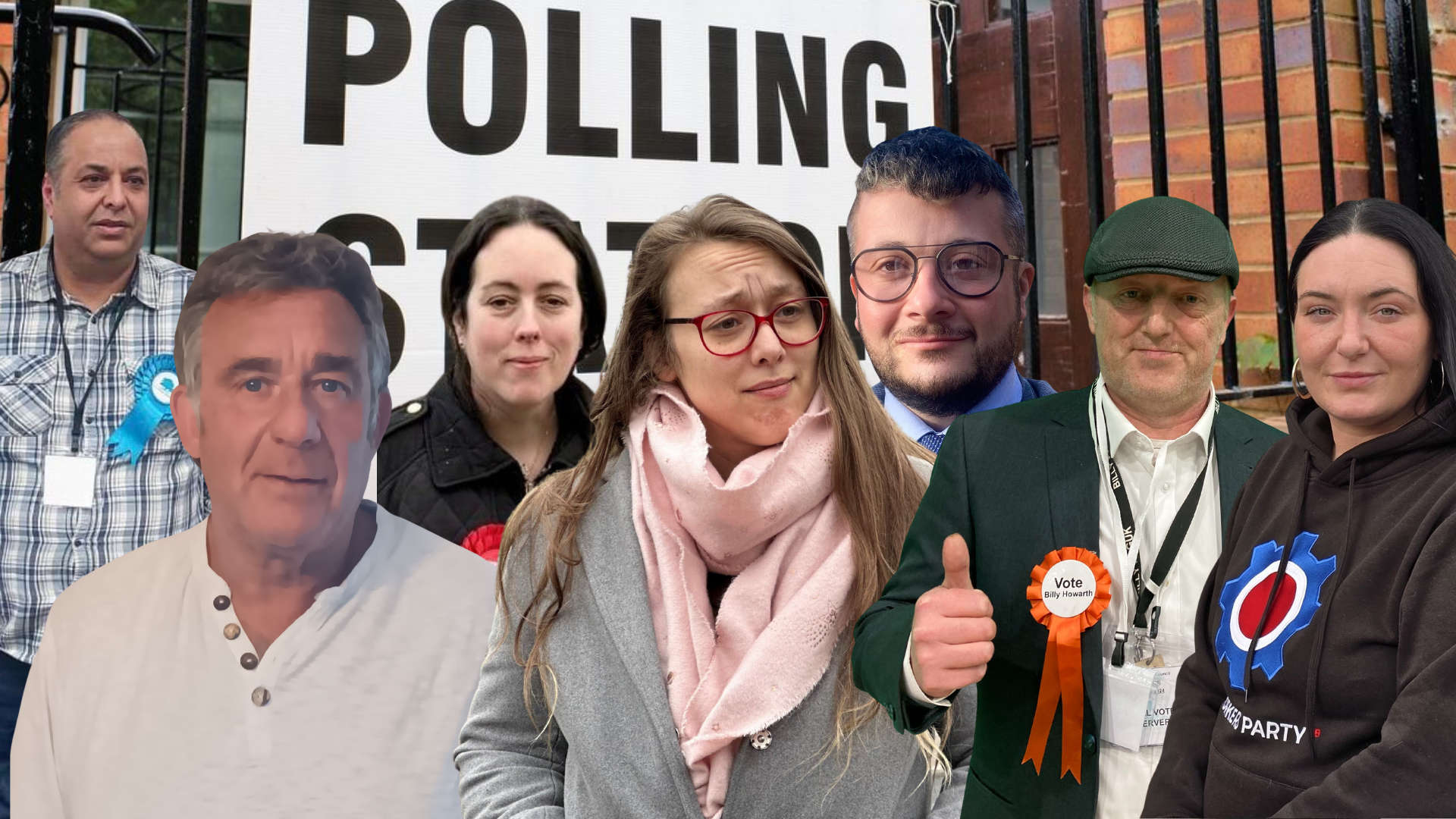 Each candidate hoping to win the Balderstone and Kirkholt by-election
Each candidate hoping to win the Balderstone and Kirkholt by-election
 GMP and partners made more than 130 visits to business premises as part of a national intensification crackdown in March
GMP and partners made more than 130 visits to business premises as part of a national intensification crackdown in March
 Seven arrested and crossbow recovered following disturbance in Salford
Seven arrested and crossbow recovered following disturbance in Salford
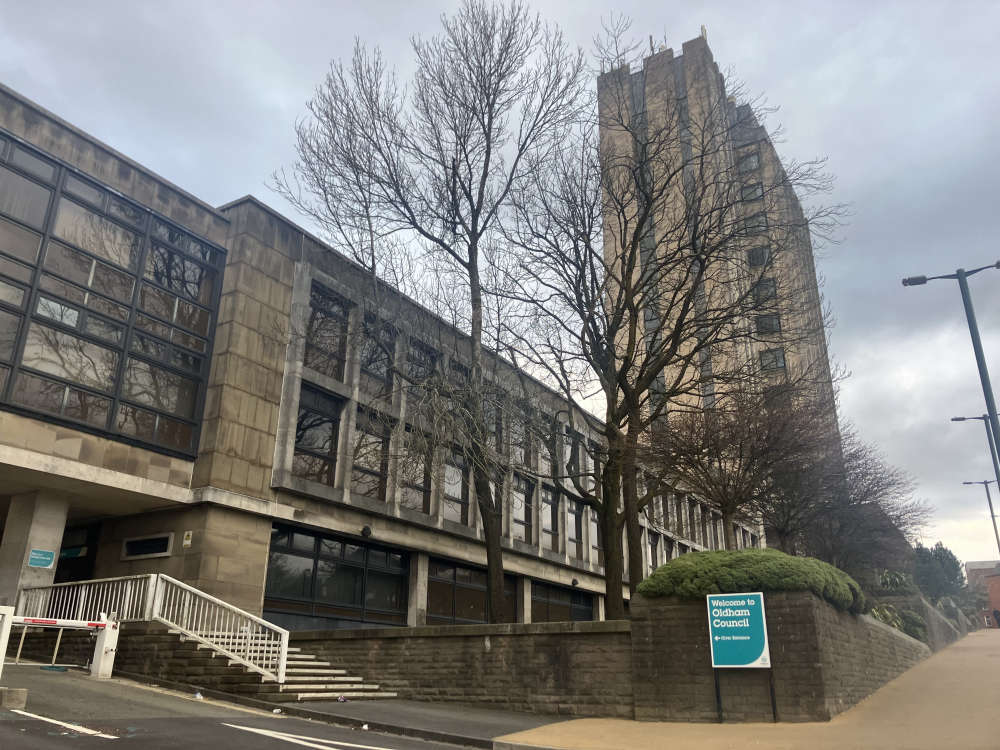 Oldham will have to bid for funding for inquiry into child grooming
Oldham will have to bid for funding for inquiry into child grooming
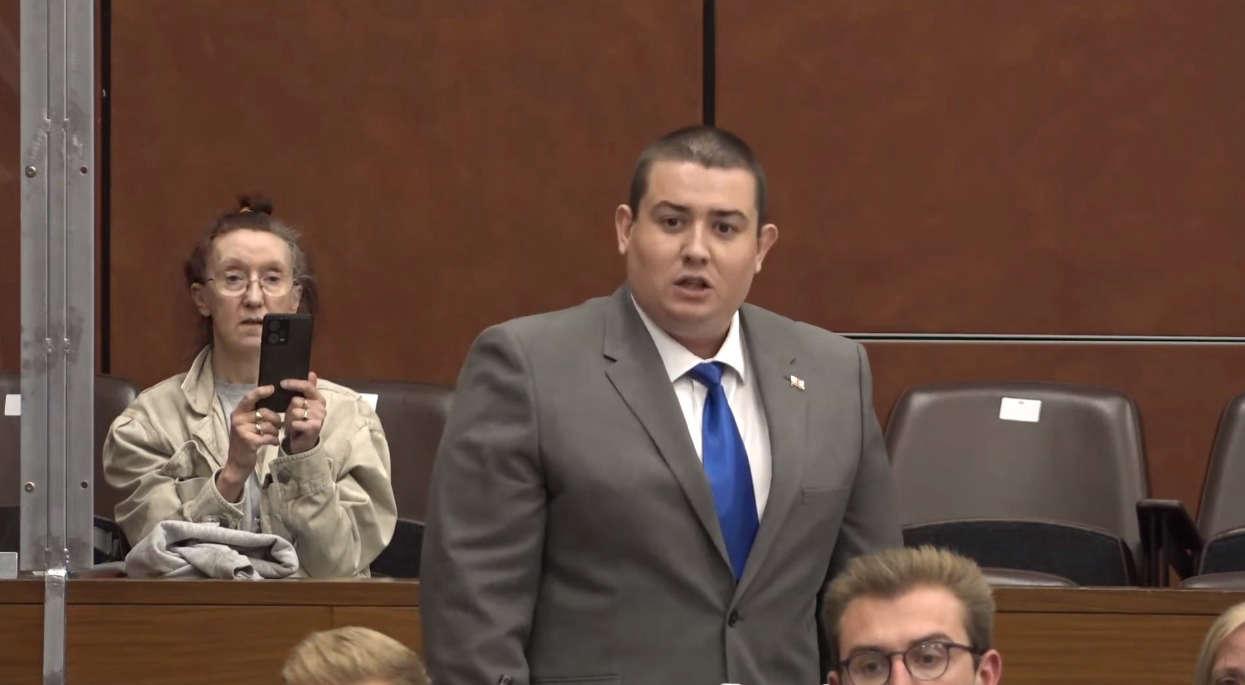 Oldham to vote on axing 20 councillors from borough
Oldham to vote on axing 20 councillors from borough
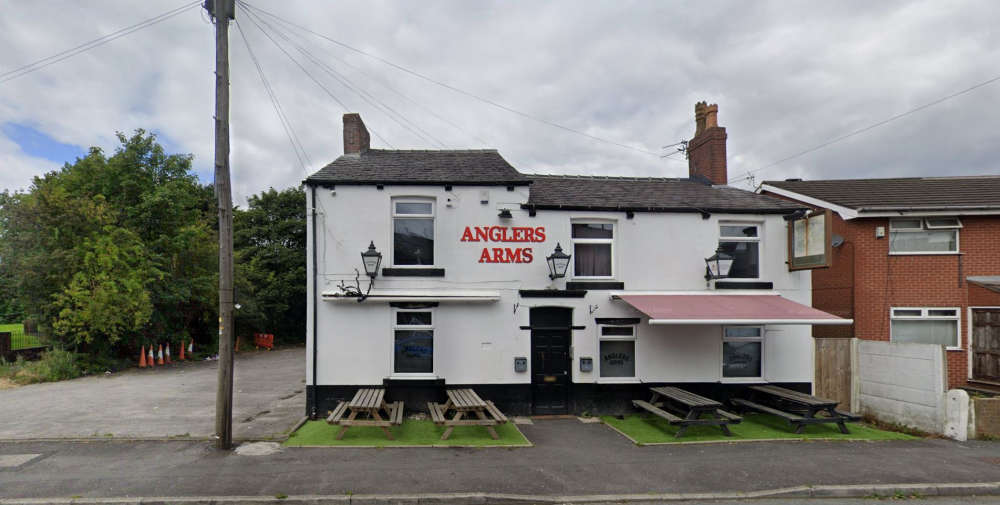 Oldham pub has licence suspended following brawl and stabbings
Oldham pub has licence suspended following brawl and stabbings
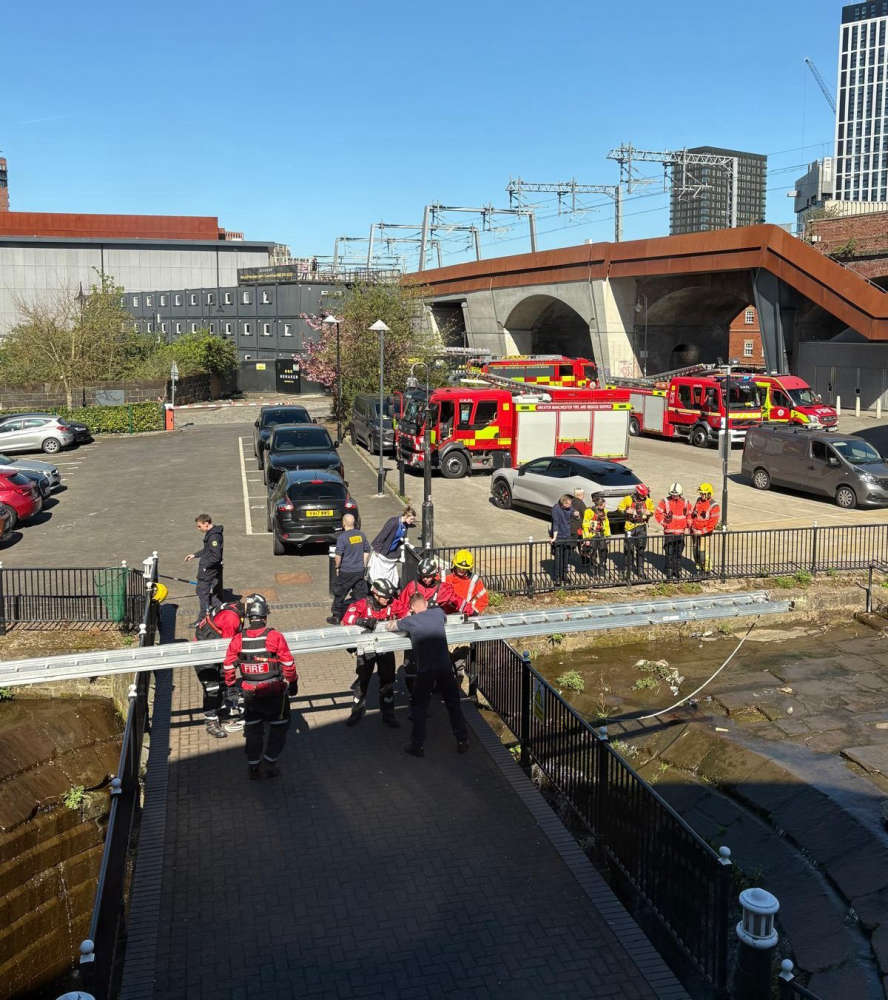 ’20 firefighters’ try to rescue single goose
’20 firefighters’ try to rescue single goose



Comments
Add a comment